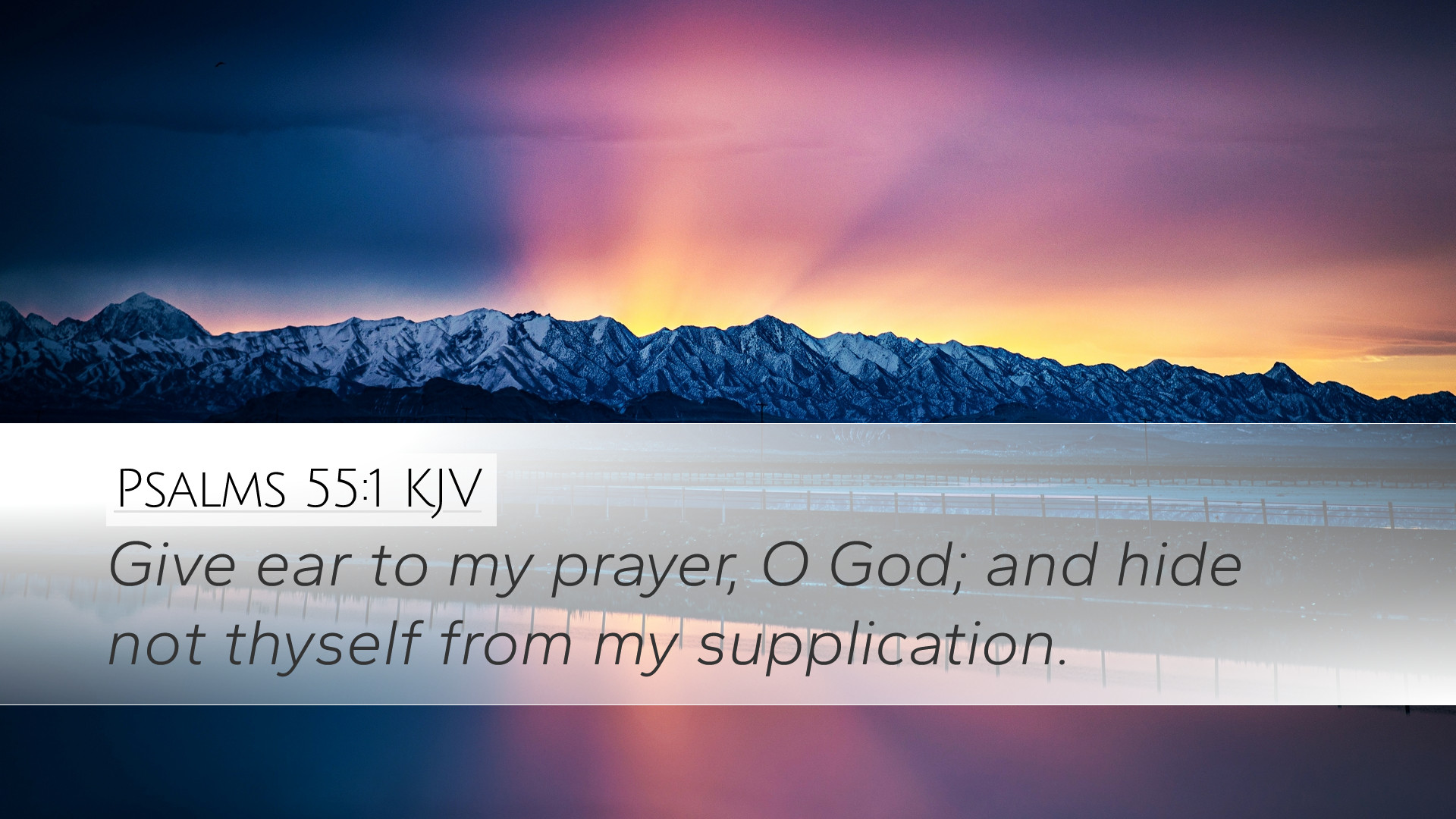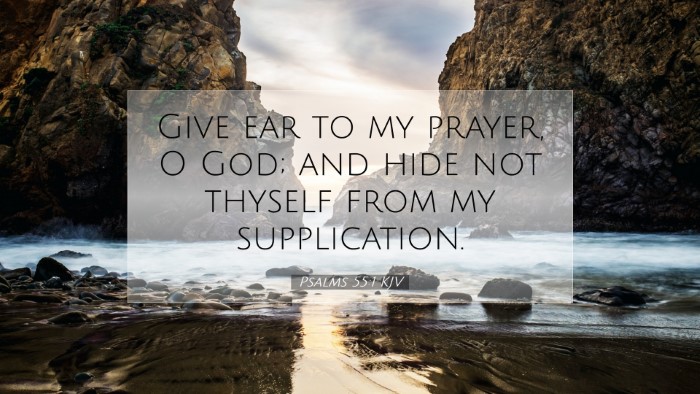Psalms 55:1 Commentary
"Give ear to my prayer, O God; and hide not thyself from my supplication."
Introduction
The opening verse of Psalm 55 sets a profound tone of urgency and desperation. The psalmist, traditionally understood to be David, appeals to God with an earnest plea for attention to his prayers. This plea reflects a deep sense of distress and a yearning for divine intervention.
Contextual Background
This psalm likely emanates from a period of great personal betrayal, potentially linked to the rebellion of Absalom or the treachery of Ahithophel. The historical context provides a glimpse into the tumultuous emotions faced by David, serving as a reminder of the pain associated with trusted relationships turned adversarial.
Exegesis of Psalms 55:1
“Give ear to my prayer, O God;”
- Matthew Henry: Henry emphasizes the psalmist’s deep desire for God to listen intently to his prayers, underlining the nature of God as one who hears and takes notice of the supplications of His people.
- Albert Barnes: Barnes notes the use of "give ear" as an invitation for God’s attention, indicative of the gravity of the situation, portraying the intimacy of communication that should exist between a believer and God.
- Adam Clarke: Clarke highlights the earnestness of David's request, suggesting that this plea reflects a soul in turmoil that seeks solace in divine presence, longing for reassurance of God’s attentive care.
“and hide not thyself from my supplication.”
- Matthew Henry: Henry interprets this as an expression of fear that God may turn away in silence, which reflects an acute awareness of God’s presence and power during trials and a deep personal relationship with Him.
- Albert Barnes: According to Barnes, the phrase suggests a plea for God’s participation in the psalmist's suffering, highlighting the relational aspect of prayer where God seems distant amidst trouble.
- Adam Clarke: Clarke remarks on the distress found in feeling abandoned by God, aligning this with the trials of the faithful who often experience moments of spiritual desolation, struggling to feel the nearness of God in times of supplication.
Theological Insights
This verse encourages reflection on the nature of prayer in the believer's life. It underscores an essential truth: God is both listening and present in our supplications. The intense plea reveals the depth of intimacy expected in communication with God, allowing believers to approach Him with both reverence and boldness.
- Intimacy with God: The psalmist's cries are indicative of a personal relationship with God, one that allows for candid and heartfelt expressions of distress.
- The Importance of Communication: The verse reaffirms that prayer is not just a ritual but a genuine dialogue with God, inviting His presence into our struggles.
- Divine Silence: The plea not to hide suggests a common human struggle with perceiving God's silence during hardship, an aspect that pastors and theologians must address when ministering to the hurting.
Application for Today’s Believers
For pastors, students, and theologians, this verse serves as a poignant reminder of the power of prayer and the urgency to call upon God, especially in tumultuous times. It calls for a reflection on our own prayer lives:
- How do we approach God in times of distress?
- Are our prayers characterized by a heartfelt cry for help, echoing the psalmist's urgency?
- Do we trust in God's attentiveness to our supplications?
Moreover, this passage invites contemplation on the universal human experience of feeling distant from God. Believers are encouraged to acknowledge their feelings of abandonment while seeking God's comfort and presence. The psalmist's honest plea illustrates the depth of faith that wrestles with both God’s sovereignty and His intimate care for His creation.
Conclusion
The opening verse of Psalm 55 encapsulates an earnest plea from a heart in distress. The intermingling of fear, hope, and deep longing for God’s presence paints a vivid image of the believer's relationship with the Divine. As we reflect on this verse, may we be encouraged to approach God boldly in prayer, knowing that He hears our voices and is ever-present in our times of need.


